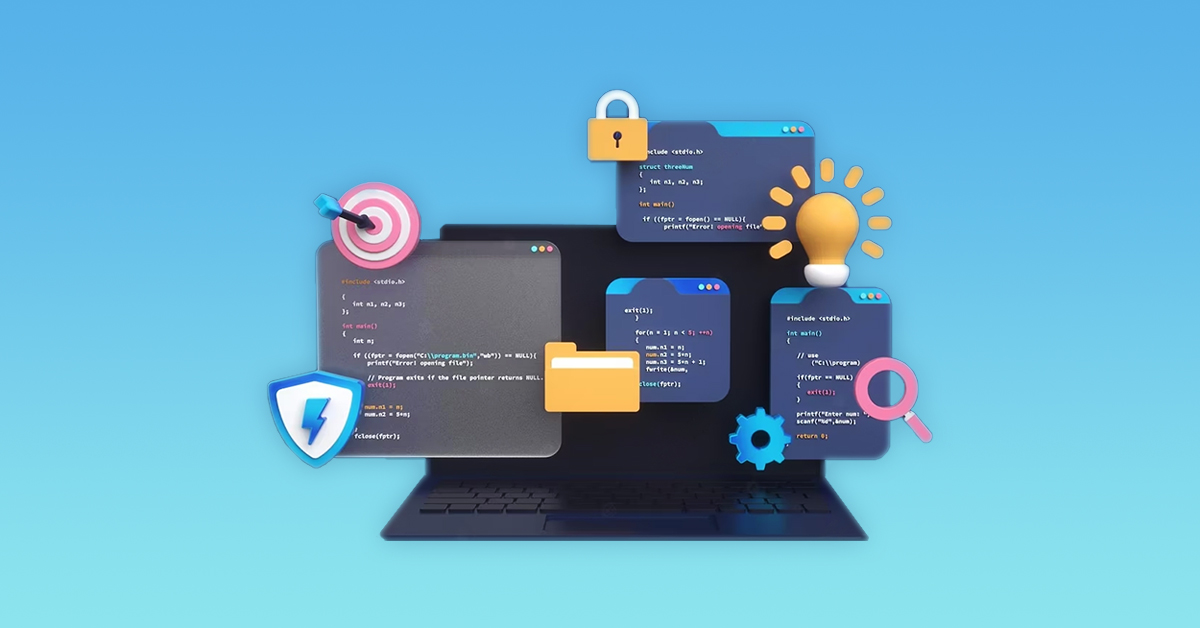The development of mobile and web applications continues to be a burgeoning business. A plethora of app development technologies exists, but when it comes to JavaScript backend frameworks, Node.JS stands out. It has firmly established itself as the top choice for companies looking to develop their backend tech stack. Its widespread use across industries as a service-side application framework makes Node.JS the go-to backend JS framework for 2024.
- Is Node JS A Backend Framework the best backend framework for Javascript 2024?
- Best Node JS Frameworks For Backend:
-Efficiency in productivity:
-Ability to use many times:
-Vast community: - What are the advantages of choosing a Node.JS backend framework for development?
- What are the drawbacks of the Node.JS backend framework?
- The growing popularity of NodeJS framework:
- Frequently Asked Questions
Is Node JS A Backend Framework the best backend framework for Javascript 2024?
Node.JS operates based on Google Chrome’s JavaScript engine. This unique setup, tailored for creating open-source network and server-side applications, coupled with its cross-platform compatibility, cements its place as one of the best backend JS frameworks for 2024.
Node JS for backend operations can run seamlessly on platforms like Linux and Microsoft Windows. Its encompassing JavaScript functionality renders it as the most optimal backend framework for web development and applications.
Reputable brands such as Twitter, Uber, PayPal, and Netflix have adopted the Node.JS platform. This wide acceptance, coupled with the fact that roughly a third of developers regard Node.JS as their JavaScript backend framework of choice, speaks volumes about its efficacy.
Best Node JS Frameworks For Backend:
While the NodeJS framework is versatile and flexible, developers occasionally encounter hurdles in certain stages of the development cycle. Recognizing these challenges, several backend Node frameworks and javascript backend frameworks have emerged to assist developers:
Express.JS: A standout in the nodejs frameworks category, it is preferred for its minimalistic and lightweight design coupled with extensive support for HTTP. It’s the top choice for those seeking efficient web application, mobile app, and API development.
Meteor.JS: This backend JS framework boasts features like dynamic imports, real-time functionality, and a seamless connection between backend and frontend.
Nest.JS: A powerhouse among NodeJS frameworks, it’s renowned for its expansive library, promoting MVP, typescript, integrated OOP, FRP, and FP.
Socket.io: User-friendly and versatile, this framework has multi-platform compatibility and supports features like binary, multiplexing, and reconnection.
Loopback.io: This framework excels in simplifying API creation, offering features for storage services and ad-hoc queries.
Koa.JS: Streamlining error handling and boosting application performance are the hallmarks of this NodeJS framework.
Node.JS is one backend framework is exclusively chosen because of its ability to design scalable and flexible solutions. The non-blocking and event-driven nature of the NodeJS framework makes it one of the best backend frameworks. However, here, we will check out why the NodeJS backend framework is usually chosen for back-end development by professionals.
The non-blocking, event-driven nature of Node.JS and its capabilities in crafting scalable solutions have made it a top choice. Below, we delve into the reasons why professionals predominantly opt for Node.JS for backend development:
Efficiency in productivity:
Developers can save significant time by eliminating the need for switching contexts between different languages. Making use of JavaScript can improve efficiency as different technologies are implemented in backend development. NodeJS backend development is known for more productivity.
Ability to use many times:
Developers consider NodeJS backend framework as it supports meteor.JS and Express.JS. Express.JS is mainly used for the backend as MERN – which is a NodeJS framework. Several components in the backend JS frameworks can be used multiple times.
Vast community:
The huge online community of the best Node JS framework ensures the speed of the development cycle. When developers require help or are unable to proceed, or are stuck with an issue, the community of the Node JS for backend framework can be valuable. As there are several developers, you are more likely to get the solution as the chances are higher that another developer has already solved the issue. The active community makes it the best javascript backend framework.
What are the advantages of choosing a Node.JS backend framework for development?
- Full stack platform: With the Note.JS backend framework, developers can use JavaScript in both server-side and client development. This approach makes engineers full stack specialists and develops applications with limited resources.
- Assured performance for real-time apps: The web applications built on the NodeJS framework helps users multitask. Compared to other platforms, the event-driven architecture enables this framework to process multiple requests without making it heavy for the RAM. Node.JS backend framework is known for having an impact on the application performance.
- A vast community: The Node.JS framework is known for being the best backend JS framework because of the extended community with active developers. With specialists available to help developers makes it easy for the developers to overcome any difficulty. This community is supported by big tech companies like Facebook, Netflix, Google, and Amazon, which becomes helpful for developers.
- Cross-functional team building: The full stack development ability available in the best Node.JS framework can be helpful for developers to create teams wholly focused on enhancing the development life-cycle. Such a work environment improves productivity and enables fixing issues much faster.
- Scalable application: The noteworthy technology in the Node.JS framework is its cluster module. This specific module makes it one of the most popular backend frameworks as it enables balancing load in different system configurations. This technology allows smaller models to achieve desired results without making them heavy on the RAM.

You might want to read
Basics of Java Microservices: Frameworks, Examples & Use Cases
What are the drawbacks of the Node.JS backend framework?
- Not practical while managing computing tasks: Node.JS framework is usually great but unsuitable for heavy computing tasks. It uses CPU power and results in slowing down the event loop. Even when the worker threads module has been released, there are still some challenges with hi-end computing needs.
- Maintaining codes can be challenging: If you have experience working with JS, you know the problems with callback issues. It results in inadvertent errors and becomes hard to read.
- Lack of expert Node.JS developers: It is one of the most popular backend frameworks, but there are fewer talented developers. This makes it challenging for companies to ensure successful development.
The growing popularity of Node JS framework:
Node JS is currently one of the most chosen mobile and app development backend frameworks. This has become one of the most popular backend node frameworks because of its ability to resolve challenges and reduce problems in the development phase. The excellent outcome that developers can provide by using the best backend JS frameworks helps improve their horizons and provide innovative features. Additionally, the vast community of functional and talented developers becomes helpful for resolving any issues with the Node.JS frameworks.
Frequently Asked Questions
Node.js is considered the best backend framework for web development in 2024 due to its efficient and scalable nature, robust ecosystem, and ability to handle a large number of concurrent connections.
The advantages of using Node.js as a backend framework in 2024 include its fast and event-driven architecture, extensive package ecosystem (npm), seamless integration with front-end technologies, and the ability to build real-time applications.
Node.js contributes to enhanced performance and scalability in web development by utilizing a non-blocking, asynchronous I/O model, allowing for efficient handling of multiple requests simultaneously. This enables developers to build highly responsive and scalable web applications.
Yes, Node.js is suitable for both small-scale and large-scale web development projects in 2024. Its lightweight nature and ability to handle concurrent connections make it ideal for both simple, single-page applications and complex, enterprise-level systems.
Some successful examples of companies leveraging Node.js as their backend framework in 2024 include Netflix, PayPal, LinkedIn, Walmart, and Uber. These companies have adopted Node.js to achieve high performance, scalability, and real-time capabilities in their web applications.








